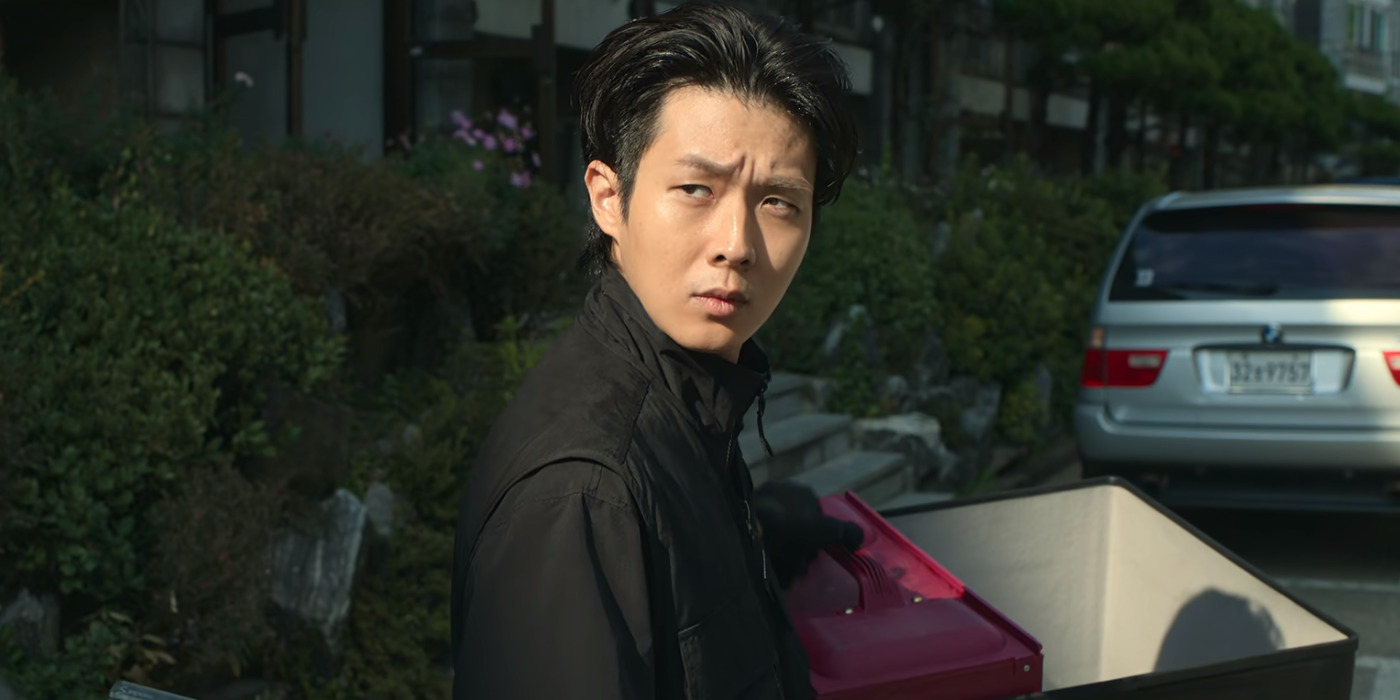The Netflix crime comedy Kdrama, ‘A Killer Paradox,’ pitches an exhilarating story about a vigilante who brings moral reckoning upon villainous individuals while tarnishing his morality in the process. Shortly after Lee Tang, a regular college kid with a dead-end part-time job, commits his first murder, he realizes that his victim is a serial killer, lessening some of the weight behind the former’s actions. However, things only get weirder from there when the man continues to sustain an inclination toward spotting wrong-doers and delivering vengeance upon them. As expected, his actions attract unwanted attention from law enforcement officers, particularly Detective Nan-gam Kang, sending Lee on the run against the law.
The show deals with nuanced themes of ethical responsibilities and guilt by asking the age-old question of the moral karmic sum behind the action of killing a killer. However, as the audience accompanies Lee on this action-rich, crime-driven, philosophical journey, they’re bound to grow naturally curious about the actual nature of the man’s powers and their origins. SPOILERS AHEAD!
Lee Tang’s Powers of Retribution
Within the show, the narrative leaves the origins or intentions behind Lee Tang’s powers unexplained in favor of the plot progression. Lee is a fairly regular college student, aimlessly going through the motions without a set ambition in life. He’s undecided on his life’s purpose and often attempts to find his calling, only to give up halfway through. His lack of drive has been a characteristic for him for years and offers little room for personal development.

However, on a non-descript night, Lee’s life changes for the worse or for the better. After crossing paths with a sketchy man, Lee ends up entering an altercation that ignites some repressed anger within him, compelling him to kill the man with a hammer. Even though the murder is erratic, Lee is in control of his actions and equally horrified by the aftermath. In a rush to retreat to the safety of his studio apartment, Lee bolts away from the crime scene, leaving plenty of evidence behind.
However, every well-placed sloppy evidence resolves itself through outside forces. Furthermore, the revelation of the murdered man’s past heinous crimes comes to the forefront, absolving Lee of most of his guilt. Although initially it seems like luck has taken a particular liking to the man, the same instance repeats itself when Lee is compelled to kill again.
Eventually, after Lee’s path crosses with Roh-bin, a wannabe vigilante sidekick with the means to do so presents the idea that Lee’s powers are universe-mandated. While Lee had been in control every time he committed the murders, it isn’t as if the man is a psychopathic individual with arbitrary homicidal urges. Instead, Lee only strikes to kill when an inexplicable rage overtakes him. In all such instances, the people Lee kills turn out to be immoral individuals with some past crime attached to their names.
The fact that the universe seems adamantly averse to the idea of Lee’s arrest for these crimes further strengthens the idea. Likewise, since Lee himself attempted to confess his crimes to the police only for destiny to step in and stop him, the man’s guilty conscience proves his own morality. For the same reasons, the idea that Lee’s powers are a manifestation of the universe or some higher power seeking retribution to even out karmic scales remains the most sound explanation in accordance with the show’s narrative.
Ultimately, despite their mysterious nature, Lee’s powers end up bestowing a life’s purpose to the man. Even though his regular life jumbles into a mess, delivering retribution upon evil brings a sense of purpose to Lee, who finally finds his fate in life.
The Thematic Resonance of Lee’s Powers
Lee’s powers of recognizing evil and delivering them to justice feed the show’s central theme of the connection between what’s moral and what’s lawful. Although Lee’s powers don’t force him to commit murders, they come with the caveat of knowing an individual’s immorality. Whenever Lee encounters a villainous individual who has committed some abhorrent crime in the past, a tingling sensation takes over the man, signaling their lack of virtue to him.

As such, Lee’s powers don’t simply turn him into a killer. However, by introducing him to a person’s vile nature, his powers put him in an impossible situation. Lee can either walk away, or find a way to deliver lawful justice, or simply take matters into his own bloodied hands. Considering his powers include a comprehensive lack of repercussions, Lee repeatedly chooses to kill. By doing so, his character argues the moral responsibility that may come with such powers of evil recognition.
However, Lee’s narrative is artfully offset by Nan-gam’s law-abiding character, who argues that people can’t play god and hand out retribution at their will. As a result, his character maintains a lawful perspective, creating narrative friction between the two characters and their positions as a cop and a gifted vigilante.
Lastly, Song Chon, Roh-bin’s previous vigilante-partner-gone-rogue, arrives as the character foil to Lee. Unlike Lee, Song possesses no otherworldly powers and doles out punishment at his will. Therefore, through his messy sense of justice, the narrative highlights the significant and objective nature of Lee’s powers. In the end, their combined perspectives create a nuanced understanding of morality. Thus, Lee’s universe-assigned powers of retribution heavily influence the show’s thematic storyline.
Read More: Is Netflix’s A Killer Paradox Inspired by a True Story?


You must be logged in to post a comment.